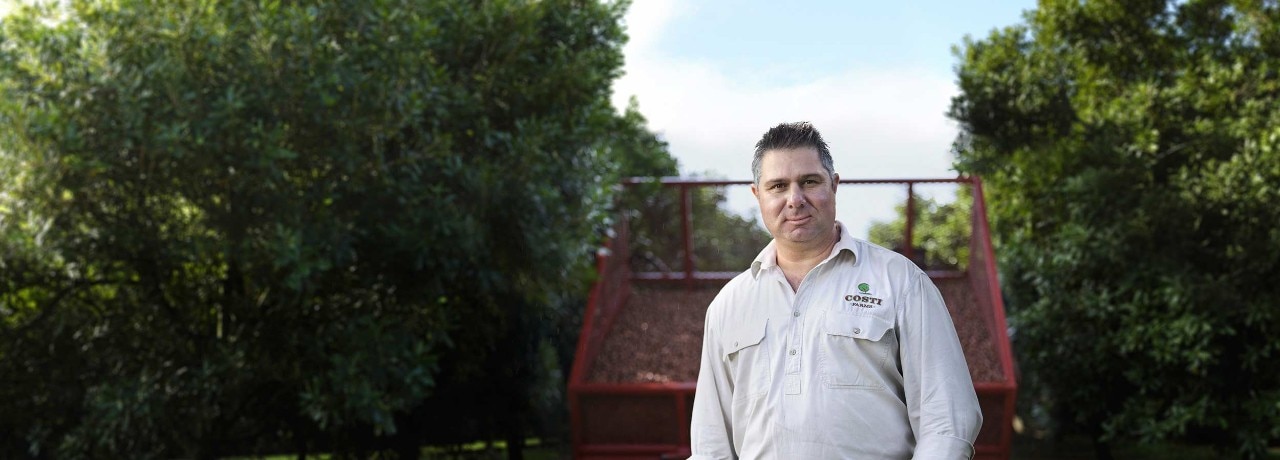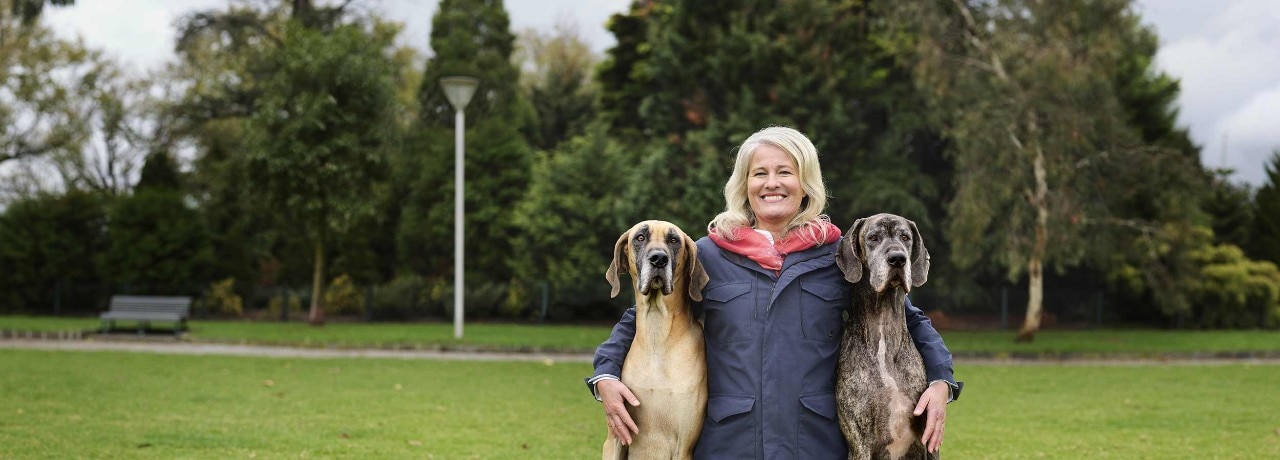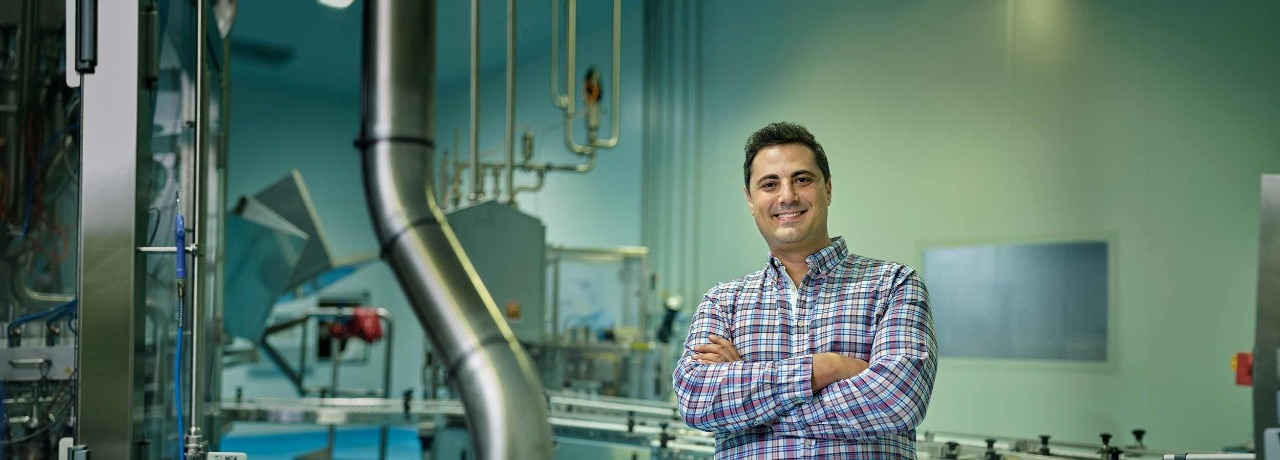Peter Costi and Costi Farms | Story of expansion - NAB
Knowledge, expansion and securing his family’s future. All this means progress to Peter Costi.
Thinking 30 years ahead
Peter Costi has a 30 year business plan. One that involves moving his business forward – as well as the entire macadamia industry. Watch the video of his story.
Peter's story of progress
With macadamia trees taking years to reach nutting maturity, progress is a long-term plan. So the fact that Peter Costi, the world’s second largest macadamia producer, has a thirty-year business plan perhaps isn’t surprising. That he has one for the whole industry is.
When it comes to progress, there’s nothing like the idea of potential to inspire people. And, with macadamias currently making up less than one per cent of the global nut market, Peter Costi believes the Australian macadamia industry has a whole lot of growth potential.
“I see the next 30 years as continuing to scale up the business and the industry as a whole,” says Costi, today the head of the second largest macadamia producer in the world.
Demand is certainly there. Costi explains that the large companies he supplies in Australia and the US need a sizable guaranteed supply. “For us, that meant diversifying our locations to manage future weather risk as well as providing the quantity and quality.”
To help guarantee supply and protect his output from the effects of seasonality, especially after the 2012 floods that ravaged his Bundaberg plantations, Costi began buying farms in locations up to 400 kilometers apart – from southern Queensland to north of Bundaberg. But even while this strategy has helped enormously, nothing is fail-safe, Costi says, recounting Cyclone Debbie in 2017. “She hit every site,” he says.
A true key to unlocking potential, Costi believes, is maximising what you have.
He reasons that “you can say you're growing by planting more trees, but it's not progress if your trees are under-producing. So progress is also in orchard health, making sure we can produce more tonnage from the same amount of farmland.” Macadamia farming has changed a lot over the past 20 years, he adds. “We're farming very differently. We're using integrated pest-management systems – releasing wasps so we spray less.”
Working with strategic partners
Communication is another key progress pillar for Costi, who works with a number of NAB's Brisbane-based specialists. He says their fast updates and responses have allowed him to act quickly and strategically.
Costi’s banker, David Paton, NAB Senior Agribusiness Manager, adds that Peter Costi’s vision for the entire macadamia industry has been a crucial part of his personal success story. “Peter understands he needs a robust industry as much as a robust business operation to create a sustainable enterprise for the next generation,” Paton says. He adds that from the bank perspective, it comes down to having that really deep understanding of what Costi is trying to achieve so that NAB can put the right financial structures in place.
“We have an understanding of his long-term road map and what we need to do to help him achieve that outcome,” Paton says.
As for Costi, he says that his relationship with NAB Agribusiness has been instrumental in the swift growth of Costi Farms. “They understand our business as much as we do and have allowed us to expand at the rate we have. Without them, we wouldn’t have been able to secure properties or seize opportunities quickly.”
Another area the NAB team has helped Costi understand is international trade. As an exporter, Costi Farms is sensitive to currency fluctuations.
“There's not a day that I don't talk to my NAB Agribusiness Banker or the foreign exchange guys,” Costi says. “We watch where our sales and pre-sales are at and what we've secured in US dollars.”
Unlocking growth with knowledge – and family
Knowledge is another key to progress for Costi: knowledge about the expansion required to meet markets, knowing where you’re going, being able to adapt on the go. And he admits he’s not happy unless he’s challenging himself. “I’ve never said, ‘Hey, we're here, we’re sitting good. This is easy.’ And the good thing about the family is they’ve never said ‘no’ either. So it doesn’t matter where we go now, this is probably our launching pad for the future – for the next 30 years.”
“One of the most moving things for me is having my wife and four kids involved in the business. Looking at my eldest son taking the role that he takes… for me, that secures the future of the aggregation within the family.”
“We've got a business that they’ll be able to grow into the future.”
His advice to the next generation is predictably all about long-term thinking too. “It's only at the end of the year that you go, ‘Wow, this is really going to work’. At the start, you’re sort of sitting there thinking, ‘Geeze, have I really done the right thing here?’ So when they want to quit, my advice is just say to yourself, ‘I'll quit tomorrow’. Don’t give up today.”
Our customers' stories of progress
Progress isn’t always a straight path
Jane Templeton always has a plan — even when things don’t go to plan. It’s an approach that’s taken her dog treat business from family kitchen to knocking on Asia’s door.
Turning risk into sweet success
The doubts of friends and family did little to deter Paul Polly. Rather, they motivated him to take Wicked Sister desserts from a single pot operation to a full-scale manufacturing facility.
Let's move your business forward
Agribusiness banking
Banking solutions for farmers and the agribusiness industry.
Get in touch
Contact us
Explore our business banking contact information and get support with a wide range of products, services and topics.
Visit a NAB branch
Our business bankers are located all around Australia.
Important information
Apologies but the Important Information section you are trying to view is not displaying properly at the moment. Please refresh the page or try again later.
The information contained in this article is intended to be of a general nature only. It has been prepared without taking into account any person’s objectives, financial situation or needs. Before acting on this information, NAB recommends that you consider whether it is appropriate for your circumstances. NAB recommends that you seek independent legal, financial and taxation advice before acting on any information in this article.



